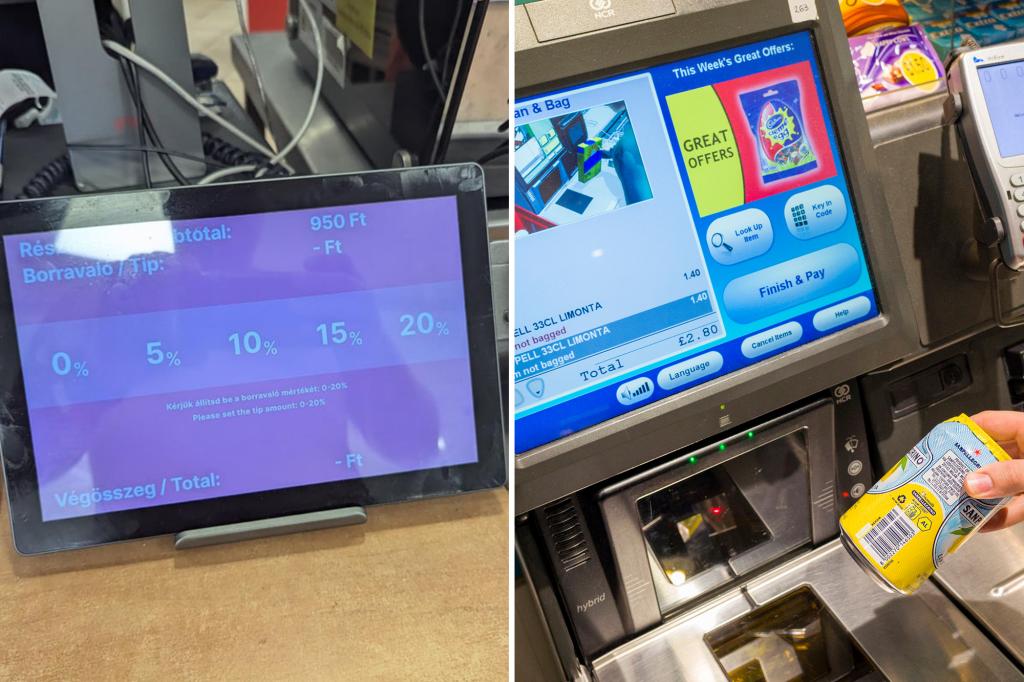The tipping trend, which has long been customary in the United States, appears to be spreading across the globe. A man in Hungary was shocked to be asked for a 20% gratuity at a water park’s self-service kiosk, leading to a viral post on Reddit. The checkout screen at the kiosk offered options for a zero, five, 10, 15, or 20 percent tip, leaving many viewers appalled by the seemingly extortionate request. Some blamed American tourists for pushing tipping culture onto other countries, while others pointed to global inflation and underpayment of workers as potential causes.
The prevalence of tipping culture has been on the rise, with cafes and brasseries in Paris requesting an extra 20% ahead of the summer Olympics. Pubs in the United Kingdom have also begun asking for tips, even when customers have had to wait in long queues for a drink. This trend has led to frustration for many, such as a 59-year-old project manager in London who expressed confusion over why tips were expected in situations where customers have to do much of the work themselves. It appears that the global spread of tipping culture is becoming more common, with businesses in various countries adopting the practice.
Some Redditors have expressed concern over the influence of US tourists in spreading tipping culture to other countries. They argue that Americans often tip heavily, leading to an increase in expected gratuities in places like South America where the standard tip used to be 10%. Others have pointed out that global inflation and companies underpaying workers may also be contributing to the rise in tipping expectations. Regardless of the cause, it seems that tipping is becoming more widespread, with businesses in various regions adopting the practice.
The tipping phenomenon has sparked debate among internet users, with some defending the practice and others criticizing it. Some claim that tipping is a way to support workers who are often underpaid, while others argue that businesses should be paying their employees fair wages without relying on customer tips. The debate reflects the ongoing discussion around tipping culture and its implications for workers and customers alike. As tipping becomes more common in different parts of the world, these debates are likely to continue.
The issue of tipping extends beyond individual countries and has become a global trend. With businesses in various countries adopting the practice of asking for tips, customers are increasingly faced with the expectation of providing extra money for services. The spread of tipping culture has sparked frustration among many who question why tips are expected in situations where customers have to do much of the work themselves. As tipping continues to become more prevalent, it is likely that debates around the practice will continue to arise in different regions around the world.
The impact of tipping culture on workers and customers is a complex issue that has implications for the service industry as a whole. As businesses in different countries adopt the practice of asking for tips, questions about fair wages and customer expectations continue to arise. While some defend tipping as a way to support workers, others argue that businesses should be paying fair wages without relying on customer gratuities. The ongoing debate surrounding tipping culture reflects the changing attitudes towards service industry practices and the global spread of tipping expectations.


